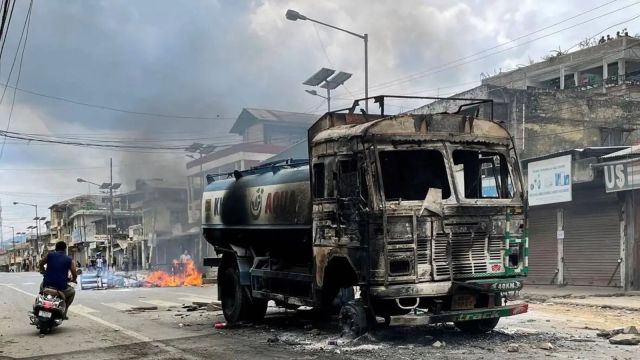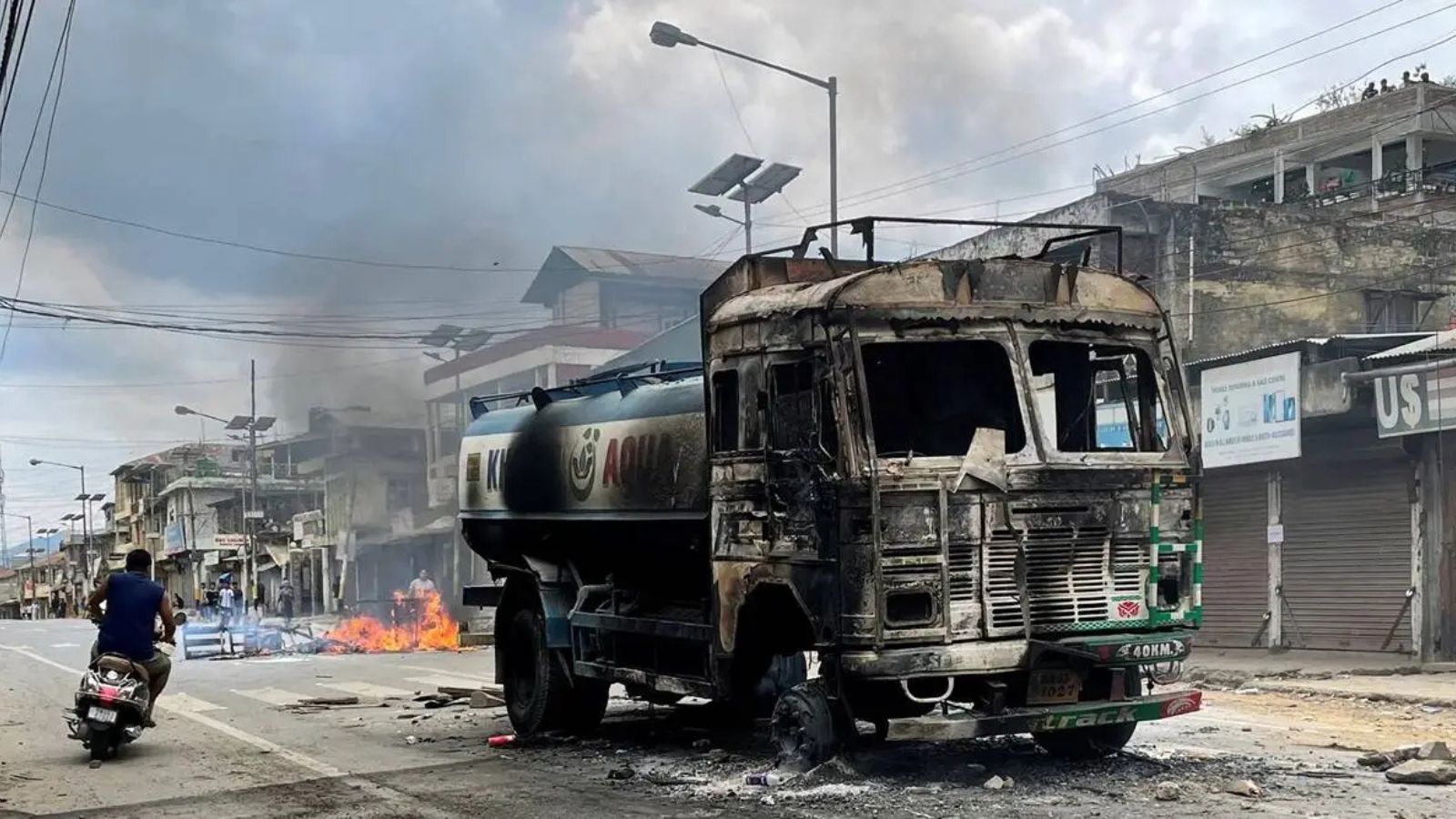

G Amarjit Sharma
Dec 5, 2024 20:43 IST First published on: Dec 5, 2024 at 20:43 IST
Women and children, languishing as internally displaced people (IDPs), were slaughtered and thrown in the river. A woman was burnt alive in her house. Another woman was shot dead while harvesting in a paddy field. The latest episode of violence in the Jiribam district of Manipur in November accentuated the deeply precarious condition of people in the state since the beginning of violence in May 2023. Several such brutal killings can be cited in the last 17 months of Manipur violence. Why do horrific killings not lead to collective ethical actions against violence and redefine our politics? Judith Butler, a renowned philosopher and gender theorist, maintains that the precariousness of life and vulnerabilities of the body due to pain and grief potentially enable us to see one another as equals, leading to collective ethical actions. But what we see in Manipur is different. There is a need to deliberate on the state of brutal politics, the seeming death of collective grief and absence of ethical actions against violence.
On November 14, the Union Ministry of Home Affairs (MHA) announced the extension of the Armed Forces (Special Powers) Act (AFSPA) in six police station limits in five districts of Manipur because of “volatile” situation and “active participation of insurgent groups in heinous acts of crime”. On the ground, to the contrary, the extension of AFSPA has gone down as an instrument to deepen an already divided society and geographies. The extension signifies not only the continuity of extraordinary laws but also the institution of an extraordinarily fragile civil life. It is reminiscent of the experience of violence in postcolonial northeast India and the popular movement against it based on the values of right to life and justice. One would expect that the experience of the struggle would have deepened respect for each other’s lives and dignity. What we see instead is the opposite. The brutality that such people’s struggles criticised and challenged in the past has become part of the divisive politics.
Insurgency has not ended. The state’s impunity, too, has now apparently extended extra-judicially to various nodal power centres in society. Civil society groups that dominated rights politics and challenged military forces’ unmitigated powers have fallen silent. Instead, groups that seemingly have a symbiotic relationship with ambiguous state and non-state powers dominate the public discourse. In the past year-and-half of the violence, civilian groups freely roamed fully armed, almost hijacking public life in the name of ethnic demands or territorial identity. In this context, one wonders where the state is. In the official state narrative, there is a rendering of the state as a third-party mediator, ascribing current violence entirely as a result of inter-community “historical” hostilities on land and identity. The reality is that while the state fails to act swiftly, armed groups enjoy impunity against punishment for crimes they have committed. The sovereign is there. But it is not exercising its writs effectively to end the violence.
Paraphrasing philosopher Walter Benjamin’s critique of violence, violent ethnic politics institutes political order, and violence conserves ethnic politics. Such politics determines who is and who is not, who belongs and who does not in an ethnic enclosure. This politics does not allow us to see vulnerability as an equal experience. It tends to privilege one’s vulnerability over another. Precariousness of life and vulnerability are politically ghettoised and not equally seen and experienced. When people mobilise against the extension of AFSPA, other sections of society feel the necessity of the Act in all districts of Manipur. One individual death is the death of a community, while another community is regarded as the perpetrator. While a section of the people felt the protection of security forces, others felt insecurity from the same security forces. While one felt the state’s complicity in the violence, the other felt the protection of the state. The state is differently felt, accessed, and interpreted.
In this precarious circumstance, there is a widespread incapacity to share pain and suffering in Manipur. While fighting in the name of ethnic nationhood and territorial identity, debates and discussion on public order and civility on matters of life and death have stopped. Across communities, anyone who speaks against the self-determined politics of territorial identity or autonomous ethnic identity is silenced or threatened. Ever since violence erupted in May 2023, the unspoken dictum is to speak only to defend your community, otherwise don’t speak. Many felt that long years of self-determination movements have almost become ploys for those who want to preserve political influence or create their own spheres of influence. The unfortunate result is the death of the public conscience and critical public sphere.
most read
However, that does not mean one should stop thinking against and beyond the violence. The violent disruption in daily lives, anxiety, uncertainty, and brutal politics can be looked at as critical to rethink our selves and our politics. Taking such moments as those that enable collective moral action, at least for a people who have a shared history of violence in postcolonial northeast India, is not political naivete. There is still a silent moral collective that thinks against violence and ruthless politics. The time has come to give space to such a collective.
The writer teaches at the Special Centre for the Study of North East India, Jawaharlal Nehru University, New Delhi


